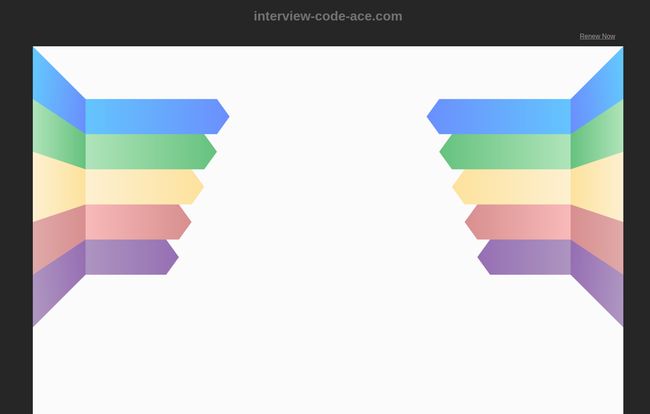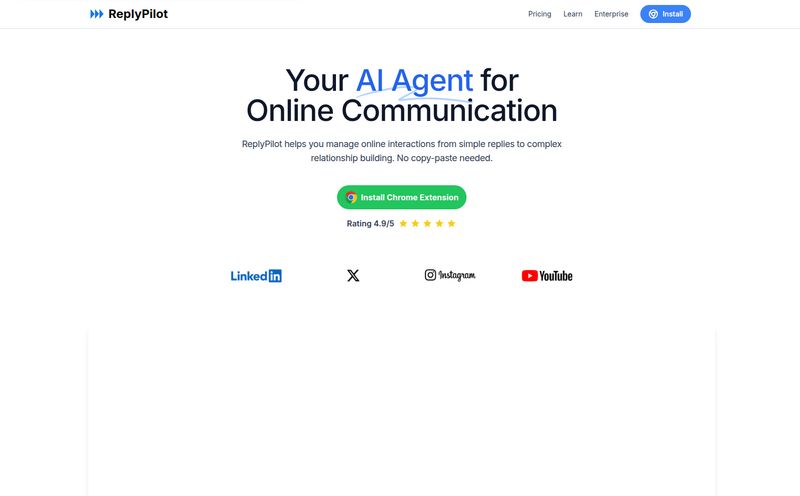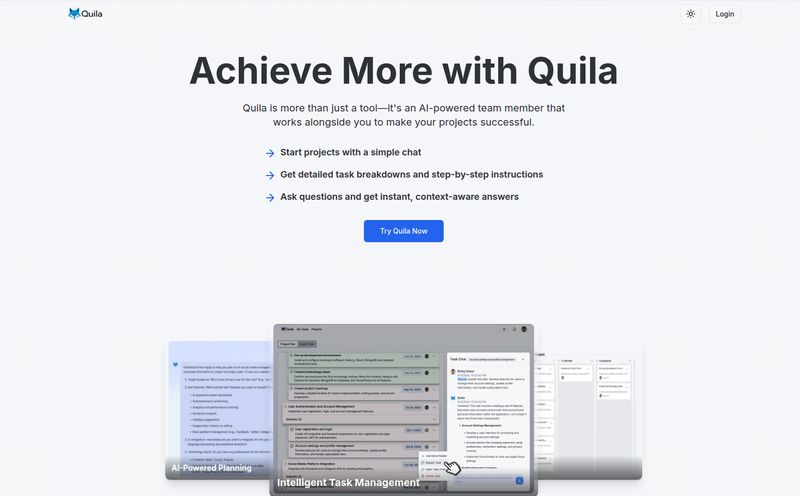The technical interview is a beast. It’s this weird, artificial gauntlet of whiteboard problems and algorithm puzzles that has very little to do with the day-to-day job of a software engineer. We’ve all been there: palms sweating, mind blanking on how to reverse a linked list, while someone silently judges your every keystroke. It’s a haze of LeetCode, HackerRank, and pure, unadulterated anxiety.
For years, the only answer was to grind. Grind until your fingers bled and you could recite sorting algorithms in your sleep. But the game is changing. AI is everywhere, and now, it's whispering sweet nothings into the ears of interview candidates. I recently stumbled upon a tool that promises to be just that—a whisper in the chaos. It’s called Interview Code Ace, and it claims to be your AI-powered companion right inside the live interview.
An AI assistant for your coding interview? It sounds like something out of a sci-fi movie. A digital Cyrano de Bergerac for coders. Naturally, my inner SEO and tech nerd had to see what this was all about. Is this the future of interview prep, or just a high-tech crutch with a subscription fee?
So, What on Earth is Interview Code Ace?
At its core, Interview Code Ace is an AI tool designed to run discreetly in the background during your technical interviews. Imagine you’re on a CoderPad or a HackerRank screen, and you hit a wall. You're stuck. Instead of panicking, you use a hotkey, and this little AI helper analyzes your screen and suggests a solution, an algorithm, or the next line of code. It’s meant to be your personal Jarvis for the interview process.

Visit Interview Code Ace
The tool works by taking a screenshot of your problem and feeding it to its AI model, which then spits back guidance. It supports multiple programming languages, which is a big plus, and it's built with one main goal in mind: stealth. It boasts features like a “clickthrough mode,” allowing your mouse to pass right over the app’s interface as if it weren’t there. The idea is to give you a secret advantage without raising any red flags.
How It Works: The Magic Behind the Curtain
The screenshot-based approach is clever, I'll give them that. It means it doesn’t need to directly integrate with the interview platforms, which would be a dead giveaway. By using global commands (keyboard shortcuts that work no matter what window is active), you can summon help without frantically clicking around your screen. Simple. In theory.
But this is where my skepticism starts to creep in. Relying on screenshot analysis is a double-edged sword. On one hand, it's non-invasive. On the other... what if the screenshot is blurry? Or if the interview platform has a weird UI? Or if part of the question is off-screen? I've seen OCR (Optical Character Recognition) get confused by a stray pixel. An AI is only as good as the data it receives, and a fuzzy screenshot is not great data. It’s a safety net with some potentially large holes.
The Standout Features I Noticed
Okay, skepticism aside, some of the features are genuinely intriguing.
- Real-Time AI Guidance: The main draw, obviously. The promise of getting unstuck in real-time is powerful. The psychological relief alone could be worth the price of admission for some folks. It’s not just about getting the answer, but about calming the panic that derails so many otherwise capable developers.
- Staying Under the Radar: I have to admit, the “clickthrough mode” and “undetectable” claims are bold. In an industry where platforms are constantly trying to prevent cheating, building a tool designed to fly under the radar is a cat-and-mouse game. For the user, it means you can theoretically interact with your IDE and the AI overlay without your interviewer seeing you toggle between windows.
- Multi-Language Support: This is table stakes for a tool like this, but still important. Whether you’re a Pythonista, a Java guru, or a JavaScript wizard, it seems to have you covered.
The Elephant in the Room: Is This Cheating?
Alright, let’s just say it. Using an AI to feed you answers during a live interview feels… well, it feels like cheating, doesn't it? The creators position it as an assistant, a tool for “preparation and coding assistance.” It’s a fine line to walk.
I’ve seen this debate rage on Reddit and Hacker News about tools like GitHub Copilot. Some purists argue that it robs developers of the chance to learn and problem-solve. Others, more pragmatically, argue that it’s just the evolution of tooling, no different from using a search engine or an IDE with advanced IntelliSense. I mean, nobody writes code in Notepad anymore, right?
My personal take? It depends on how you use it. If you’re using it to blindly copy-paste answers, you're not just cheating the company, you're cheating yourself. You’ll be exposed the moment you have to explain your logic or face a follow-up question. But, if you use it as a safety net—a way to get a hint when you’re truly stuck, or to validate an approach you're unsure about—then maybe it’s just a modern-day study aid. Maybe. It's a grey area the size of a football field.
Let's Talk Money: The Pricing Breakdown
Like any good service in the tech world, Interview Code Ace comes with a price tag. There's no free lunch, especially not one powered by expensive AI models. Here’s what the damage looks like, according to their site:
| Plan | Price | What You Get |
|---|---|---|
| Base Plan | $7 / month | "o3 model solutions", 50 credits per month. (Apparently 70% off a $25 price) |
| Pro Plan | $15 / month | "o3 powerful model solutions", 50 credits per month. (70% off a $50 price) |
| Credit Reset | $10 | Reset your credits back to 50 if you run out. |
The pricing seems reasonable at first glance, especially with those hefty discounts. But the real kicker is the credit system. 50 credits a month. What does a credit get you? One AI interaction, I assume. If you’re practicing a lot or get stuck multiple times in a single interview, those 50 credits could vanish pretty quickly. And at $10 for a top-up, it could get expensive.
Honestly, 50 credits feels a bit stingy, especially for the Pro plan which costs more than double the base. I'd want to know more about the difference between the "o3 model" and the "o3 powerful model." Is it a GPT-3.5 vs GPT-4 type of difference? The lack of clarity there is a bit of a red flag for me.
The Not-So-Shiny Parts
No tool is perfect, and this one is no exception. Based on how it works and what it promises, a few potential problems stand out to me:
- The Accuracy Problem: As I mentioned, screenshot analysis is brittle. If the AI misinterprets the question, it could send you down a completely wrong path, which is arguably worse than being stuck.
- Software Conflicts: Global hotkeys are great until they’re not. If Interview Code Ace’s command shortcut conflicts with your operating system, your IDE, or the hundred other apps you have running, it could lead to some very awkward moments during an interview.
- The Subscription Treadmill: It’s a subscription. And it has a credit system on top of that. This model is designed to keep you paying, which is fine, but it’s something to be aware of. It's not a one-and-done purchase.
My Final Verdict: Is Interview Code Ace For You?
So, should you run out and subscribe to Interview Code Ace before your next big interview? The answer, like most things in tech, is: it depends.
If you're a junior developer who suffers from crippling interview anxiety, this tool could be a fantastic confidence booster. Just knowing you have a backup might be enough to calm your nerves and help you perform better. It could also be a decent training tool, helping you see different ways to approach problems during your practice sessions.
However, if you're a seasoned engineer, you might find it more of a liability than a help. The risk of getting an inaccurate suggestion or fumbling with the tool could outweigh the benefits. And you should already have the problem-solving frameworks to not need this kind of crutch.
Ultimately, Interview Code Ace is a fascinating product of our time. It’s a testament to how AI is seeping into every corner of our professional lives. It’s a tool that sits squarely in an ethical gray zone, but one that could, for the right person, be the little push they need to land their dream job. Just… be prepared to explain the code it gives you.
Frequently Asked Questions
Is Interview Code Ace detectable by interview platforms?
The tool is designed to be undetectable. It works via screen analysis and an overlay, rather than direct integration. However, no tool can guarantee 100% undetectability forever, as proctoring and interview software is constantly evolving.
What happens if I run out of my 50 monthly credits?
If you use up your 50 credits, you'll need to either wait for the next month for them to refresh or purchase a credit reset for $10, which will top your credits back up to 50.
What’s the actual difference between the Base and Pro plans?
The main advertised difference is the quality of the AI model. The Pro plan offers the "o3 powerful model solutions," suggesting it might provide more accurate or sophisticated answers than the Base plan's standard model. The credit limit is the same for both.
Is it ethical to use Interview Code Ace in a live interview?
This is a major point of debate. Some view it as cheating, while others see it as an advanced assistance tool, similar to using a powerful search engine. If you use it, you should be fully capable of explaining the logic and reasoning behind any code it provides, as you'll likely be asked to.
Can I just use this tool for practice?
Absolutely. This is probably its most ethical and effective use case. Using it during your LeetCode or HackerRank practice sessions can help you learn new patterns and get unstuck, improving your skills before you ever enter a real interview.
What programming languages does it support?
While their site doesn't list them exhaustively, it is advertised as having multi-language support, which typically covers popular languages like Python, JavaScript, Java, C++, etc.
The world of tech hiring is a strange and often stressful one. Tools like Interview Code Ace are a direct response to that pressure. Whether they are a helpful step forward or a problematic shortcut is something the industry will be debating for a long time to come. For now, it's one more tool in the arsenal. Use it wisely.
Reference and Sources
- Interview Code Ace Official Website
- Reddit Discussion on AI Assistants in Interviews (r/cscareerquestions)



